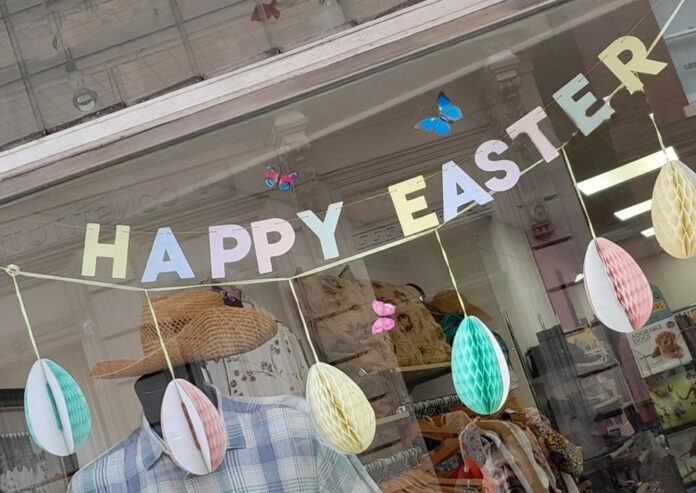Here’s a question – do you know what Easter is about? Surprisingly few people do, nowadays – even in countries with a Christian heritage, such as the UK.
It’s a festival that falls on different dates each year, because it depends on the lunar cycle. It’s loosely tied to the Jewish feast of the Passover (which is generally around the end of March in the western calendar). And here’s the key – Easter is the celebration of an event that happened at Passover time.
It was of course the death and resurrection of Jesus Christ, 2000 years ago.
The Passover
The Jewish feast of Passover commemorates the deliverance of the nation of Israel from their Egyptian slavery (around 2000 BC). The account is in the Bible in Genesis 12. On the night God brought them out of Egypt, each household killed and ate a lamb, and daubed its blood around their door. God told them, ‘The blood shall be a sign for you, on the houses where you are. And when I see the blood, I will pass over you, and no plague will befall you to destroy you, when I strike the land of Egypt’ (v. 13). Hence the name, ‘passover’. Ever since that first feast, the Jews observed the feast of Passover on the anniversary.
Like so many other details of Old Testament history, the Passover lamb turned out to be a foreshadowing of Jesus Christ. When John the Baptist saw Jesus he exclaimed, ‘Behold, the Lamb of God, who takes away the sin of the world!’ (John 1:29). Jesus actually died at the time the lambs were being killed in preparation for the Passover feast (John 18:28). Just as the blood of the Passover lamb saved the Israelites from tragedy on that first night when they were delivered from slavery, so – for those who are followers of Jesus, whether they’re Jews or not – Jesus ‘has freed us from our sins by his blood’ (Revelation 1:5).
Easter
The modern Easter festival occurs over a weekend. It begins with ‘Good Friday’ (no one’s quite sure why it’s called ‘good’) – which commemorates the day that Christ died on the cross. It culminates on ‘Easter Sunday’, which commemorates the day when Christ rose to life.
Why is it called ‘Easter’ – where does the name come from? Again, no one’s sure, but It’s probably from the word ‘east’ – that is, the direction of the sunrise. Which is appropriate – it’s the festival of dawn, when the light of the world (John 8:12) came out of the tomb to bring joy, life and gladness.
There’s no indication that the first Christians observed Easter as a festival. (The word ‘Easter’ does occur in some translations in Acts 12:4, but it’s referring to the Passover, and most Bible versions translate it correctly as Passover). Today many followers of Christ avoid the festival, along with all festivals that have been introduced by the churches. But others use this time of year as a time to reflect, and give thanks, and talk to others about the glorious meaning behind the central miracle in world history – the resurrection of Jesus Christ.
Here’s another question. Where do Easter bunnies, Easter eggs and the plethora of other Easter traditions and merchandise come from? The answer is in our limitless ability to trivialise and commercialise absolutely anything.
This Easter, why not forget the fripperies and remind yourself of the magnificent truth behind the Easter story – that ‘He has risen!’ (Matthew 28:6).
Chris Parkin


